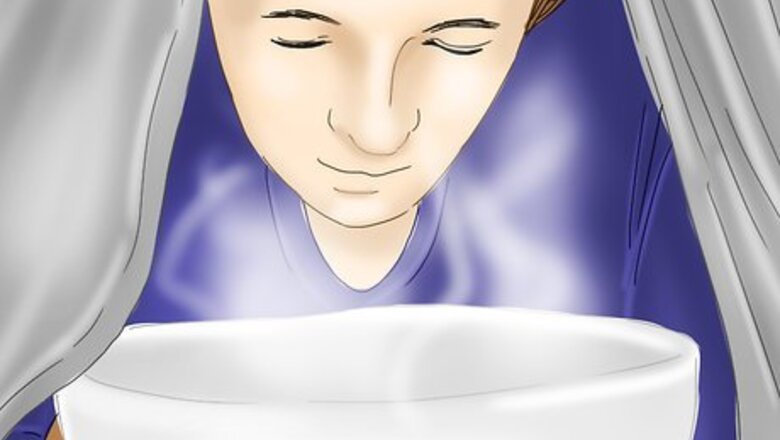
views
X
Research source
Dry throat is often caused by medical conditions, usually mild and not serious, but can also be a result of environmental factors, dehydration, and mouth-breathing, among other causes. By employing a range of remedies for common symptoms, along with addressing the conditions that can dry out the throat’s mucous membranes, dry throat can often be effectively overcome or at least improved.
Soothing the Symptoms of Dry Throat
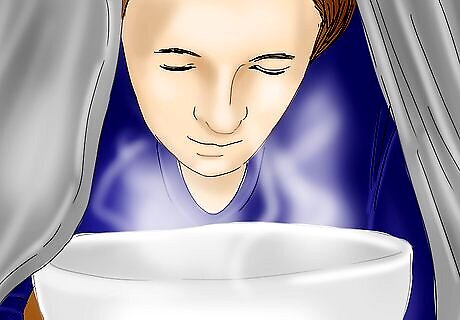
Take a steam. Like using a humidifier, exposing yourself to a steamy environment brings moisture to dry mucus membranes. Use this as an excuse to take a long, hot, steamy shower from time to time. Another steaming method is to boil a pot of water, remove it from the heat, place a towel over your head, and lean over the steaming pot. Check to make sure the steam isn’t too hot first. You can also buy fairly inexpensively steamers to place in a room or next to your bed. This tends to be more effective than boiling water.
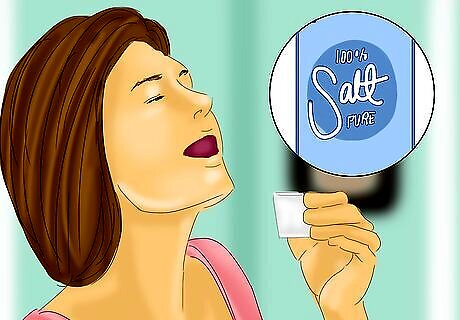
Gargle with warm salt water. Salt kills germs in the mouth and throat and helps to relieve dryness and irritation. Gargling with salt couple times a day will help to soothe a dry throat. Add 1 teaspoon of salt to a small amount of hot water. Let this cool for a bit and then add colder water. Gargle 1-2 times a day for 30-60 seconds each time. Spit once you’ve gargled. Do not swallow the salt water. Some people also gargle with an apple cider vinegar solution (1 tablespoon per cup of water). It won’t taste great, but it may work for you.

Coat the throat with honey. This one tastes better than saltwater or cider vinegar at least! Along with the coating properties of its thick texture, honey also has antiseptic properties. No wonder bees love it.
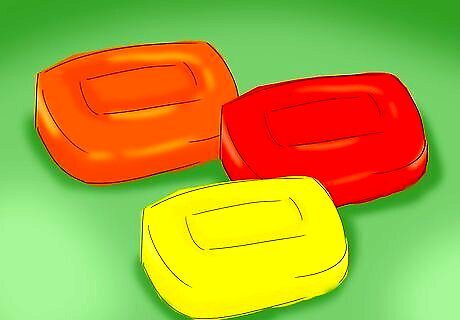
Use lozenges to build up saliva. Sucking on lozenges or hard candies, as well as chewing gum, help stimulate saliva production, which can in turn soothe a dry throat. Stick to sugar-free versions -- your dentist will thank you.
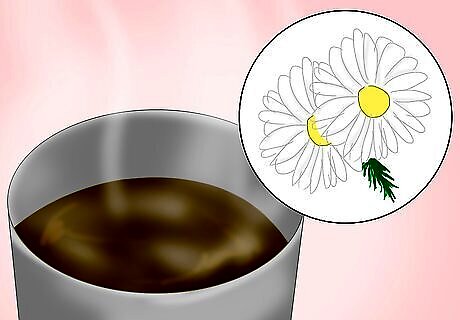
Drink hot tea. Most people find that warm liquids provide a soothing effect, so low-caffeine tea, perhaps with honey and lemon, can prove a good choice for dry throat relief. Common herbal teas like chamomile can provide relief, but some people swear by teas made from ingredients like peppermint, ginger, cloves, marshmallow root, echinacea, and slippery elm. Consider adding some honey or cinnamon to your tea, too. Both are thought to have great healing powers. Licorice root also can help soothe pain and treat throat infections naturally.
Addressing Conditions That Can Cause Dry Throat
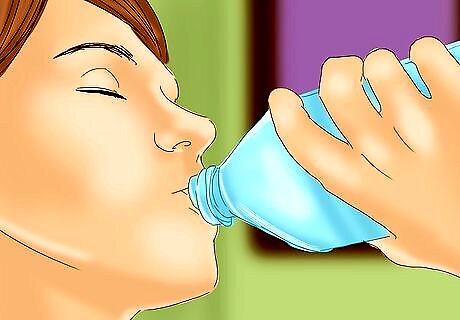
Stay hydrated. A dry throat may indicate that your fluid intake is insufficient. Drinking enough fluids, especially plain old water, may then eliminate the dry throat. Sip water or any other fluids regularly throughout the day. Limit your intake of caffeinated and alcoholic beverages, for the same reason an athletic trainer would recommend. These substances have a dehydrating effect, so regardless of what the commercials tell you, these are not the beverages to grab to quench your thirst. Some medications can have dehydrating effects also, so consider consulting your physician or pharmacist regarding your medications and dry throat symptoms.
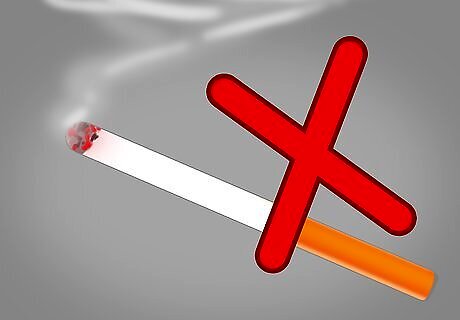
Avoid tobacco smoke and pollutants. Smoking is a bad choice for about a million other reasons already, but it -- and other throat irritants like dust and air pollution -- can cause dry throat. If you suffer from dry throat (and even if you don’t, for that matter), limit your exposure to throat-irritating pollutants.
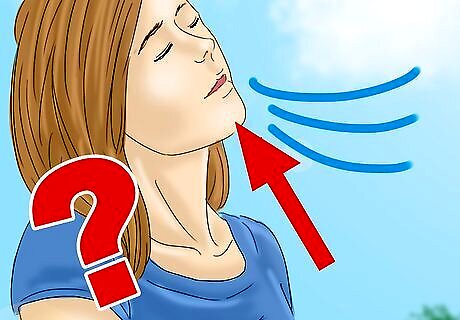
Address possible mouth-breathing. Breathing through an open mouth not only exposes the back of the throat to drier external air, it also means incoming air bypasses the typically moist environment inside the nose. This is one reason why dry throat can occur when you are battling a stuffy nose. If you notice dry throat especially after waking up, it may be the result of mouth-breathing during sleep – a potential sign of sinus adenoid issues.

Address possible acid reflux or Gastroesophageal Reflux Disease (GERD). The backflow of stomach acid into the esophagus can cause various kinds of throat irritation, including a feeling of dryness. Again, if your dry throat happens mostly as you wake up in the morning, this may be the cause. If you suffer from reflux during the night, you might try to limit your intake of acid producing foods in the evening, prop your head up higher with pillows, prop up the headboard side legs of your bed with wood blocks, or consult your pharmacist or doctor regarding the use of over-the-counter or prescription medications.
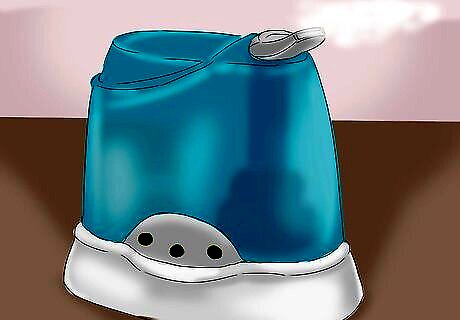
Deal with dry air by using a humidifier. Colder air holds less moisture, so during winter months especially, with the added drying effect of home heaters, your indoor air may become extremely dry. This can lead to a dry throat. The cool mist from the humidifier can soothe a dry throat by adding moisture to the mucus membranes. This may also be your excuse to take a long winter vacation to a warm, tropical climate!
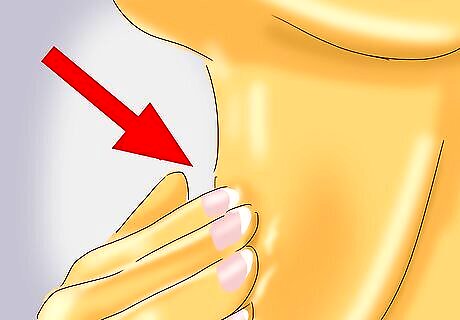
Rule out more serious conditions. When caused by a medical condition, dry throat is usually the result of an annoying but generally not severe condition like allergies or the common cold. That said, when a more serious condition is present, dry and/or sore throat can be an early indicator. Dry throat can be an indicator of serious underlying medical conditions. If you have repeated sore throats, too, consider seeing an ear, nose, and throat doctor. They can assess you to rule out these issues. If you have a fever and body aches with your dry throat, consult your physician to determine if you have an infection that may be of concern.




















Comments
0 comment